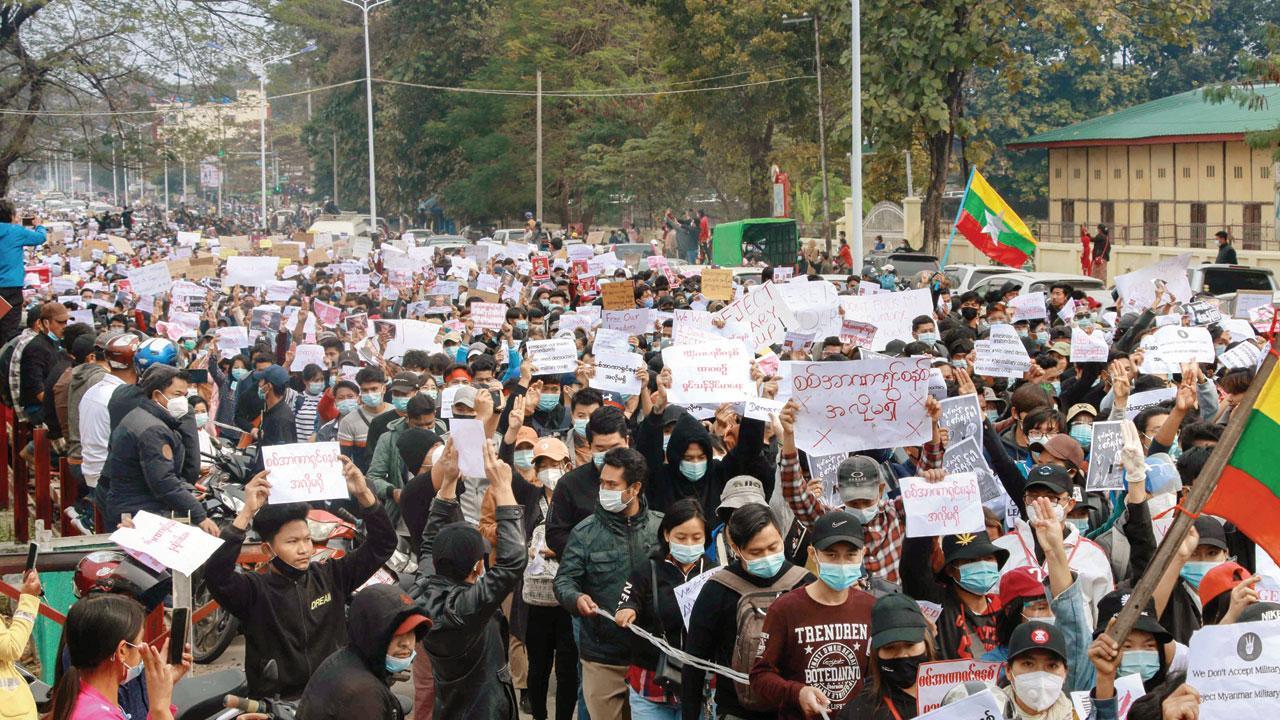People were seen chanting slogans, raising a three-finger salute that is a symbol of resistance and carrying placards saying, ‘Justice for Myanmar’

Protesters take part in a demonstration against the military coup in Myitkyina in Myanmar’s Kachin state on Monday. PIC/AFP
Police fired a water cannon on Monday at hundreds of protesters in Myanmar’s capital who are demanding the military hand power back to elected officials, as demonstrations against last week’s coup intensified and spread to more parts of the country. The demonstrations in Naypyitaw, ongoing for several days, are especially significant since the city, whose population includes many civil servants and their families, has no tradition of protest and has a heavy military presence.
ADVERTISEMENT
A protest also swelled at a major downtown intersection in the country’s largest city, Yangon, with people chanting slogans, raising a three-finger salute that is a symbol of resistance and carrying placards saying, ‘Reject the military coup’ and ‘Justice for Myanmar’. There were also reports of new demonstrations in towns in the north, southeast and east of the country, as well as in the city of Mandalay, where there was a procession of marchers and motorbikes.
“We do not want the military junta,” said Daw Moe, a protester in Yangon. “We never ever wanted this junta. Nobody wants it. All the people are ready to fight them.” State media for the first time on Monday made reference to the protests, claiming they were endangering the country’s stability.
“Democracy can be destroyed if there is no discipline,” according to a statement from the Ministry of Information, read on state television station MRTV. “We will have to take legal actions to prevent acts that are violating state stability, public safety and the rule of law.”
This story has been sourced from a third party syndicated feed, agencies. Mid-day accepts no responsibility or liability for its dependability, trustworthiness, reliability and data of the text. Mid-day management/mid-day.com reserves the sole right to alter, delete or remove (without notice) the content in its absolute discretion for any reason whatsoever.
 Subscribe today by clicking the link and stay updated with the latest news!" Click here!
Subscribe today by clicking the link and stay updated with the latest news!" Click here!







